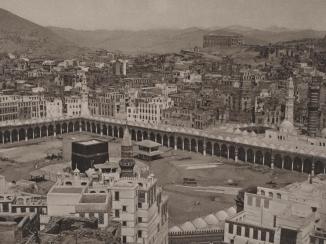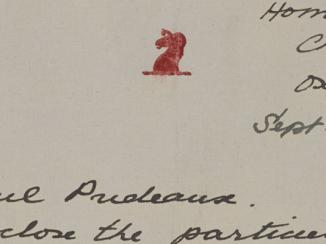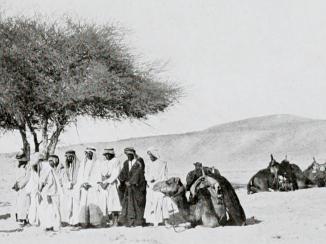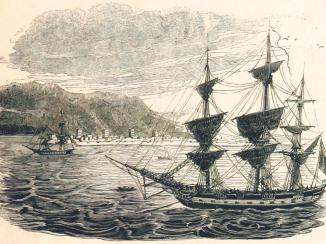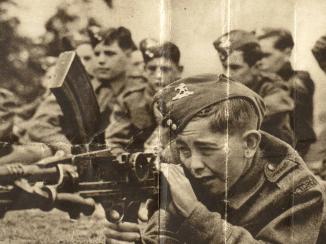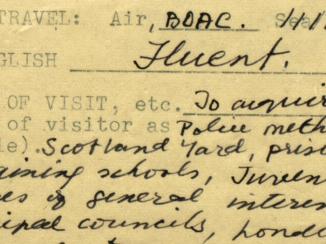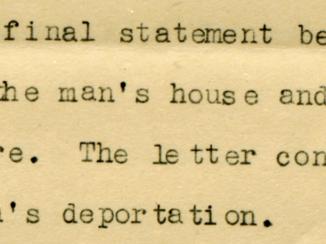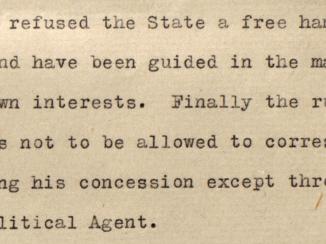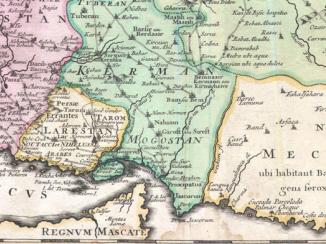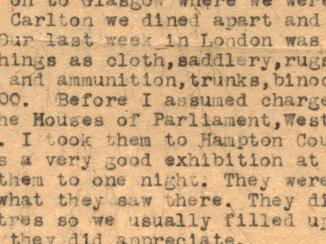Overview
One night in June 1940, ‘Abd al-Razzaq Razuqi (usually referred to as Abdur Razzaq), the British Residency An office of the East India Company and, later, of the British Raj, established in the provinces and regions considered part of, or under the influence of, British India. Agent in Sharjah, put on a disguise and made his way to the Palace of Shaikh Sultan bin Saqr Al Qasimi, the ruler of Sharjah.
German Broadcasts
After hearing reports that the Shaikh had taken to playing German radio broadcasts in Arabic so loudly that they could be heard from two hundred yards away, Razuqi wanted to establish for himself if the rumours were true. His visit to the Palace confirmed that the reports were correct. So he wrote up his findings in a detailed letter to his superior, the British Political Agent A mid-ranking political representative (equivalent to a Consul) from the diplomatic corps of the Government of India or one of its subordinate provincial governments, in charge of a Political Agency. in Bahrain, Hugh Weightman.
In the letter, Razuqi explained that ‘a large crowd gathers there [the palace] to hear the German news’. Referring to the latest events in France, presumably its occupation by German forces that began in May 1940, he wrote that ‘some people had been talking freely in the town about the mighty power of Germany and the collapse of France which would soon be followed by the complete crush of Britain’.
‘Long Live Hitler’ Chalked on Sharjah Walls
Razuqi speculated that no one in Sharjah ‘would venture to speak against the British Government unless he was backed up by some responsible person.’ As he did not believe that the Shaikh himself was pro-German, he set about making ‘very careful and secret enquiries’ to discover who this responsible person could be. His enquiries established that the primary source of anti-British sentiment was said to be the secretary of the Shaikh, Abdullah bin Faris, a subject of Sharjah, whose father was from Nejd in the Arabian Peninsula.
Razuqi explained to Weightman that although courteous and full of praise for the British government to his face, ‘behind the curtain’ bin Faris had induced ordinary people under his influence to spread rumours about the victories of the Germans and the defeats of the British. It appears that bin Faris was convinced that the British were going to lose the war. Razuqi reported that bin Faris had expressed this belief during a communal meeting or majlis of the Qadi (the highest-ranking religious authority). He also reported that the slogans ‘Long live Hitler’ and ‘Right is with Germany’ had been chalked on walls in the centre of the town.
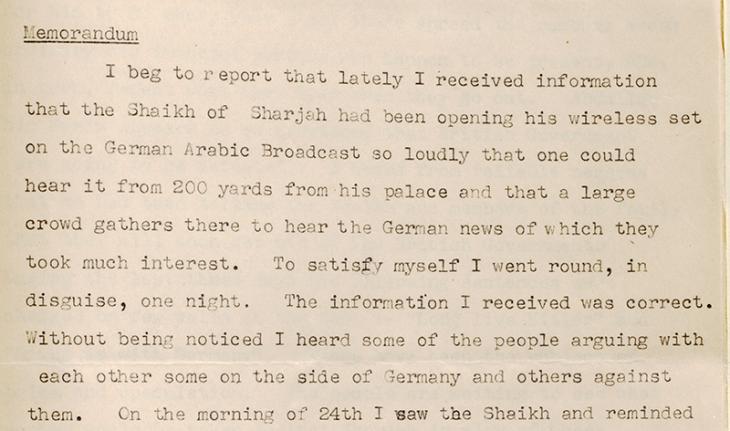
Wartime Propaganda in Arabic
Although reports of German radio broadcasts in Arabic and the existence of pro-German sentiment in a desert town on the coast of the Gulf may seem incongruous, given the large-scale propaganda efforts that the German government directed towards the Middle East during World War II, they are not in fact surprising.
Between 1939 and 1945, the German government broadcast constant short wave Arabic language programmes to the Middle East and North Africa. The Italian government also broadcast Arabic language programs to the region (1934–43). The British government directly responded to these efforts in November 1940 when it established the Bahrain Broadcasting Station.

German Radio Presents Nazis as Anti-Imperialists
The Arabic broadcasts on German radio presented the Nazi regime as staunch supporters of anti-imperialism. Especially with regard to Britain’s role in the Middle East, it is unsurprising that they found a receptive ear amongst individuals under indirect control of British colonial authorities, notably at a time when – after the fall of France – it looked as though Britain may lose the war. In this context, Razuqi and his superiors were fully aware of the importance of quelling any anti-British or pro-German sentiment and took the matter very seriously.
‘Most Loyal and Sincere Friend of British Government’
Razuqi confronted the Shaikh about his activities, demanded an explanation and reminded him of his obligations to the British. Razuqi later stated to Weightman that ‘I am strongly in favour of taking the most effective action against a mean person like Bin Faris who is taking misadvantage [sic] of the world situation’.
In response, in July 1940, Shaikh Sultan sent a letter to Weightman proclaiming his absolute loyalty to Britain and wholly denying the accusations against his secretary bin Faris. The Shaikh stated that ‘under all circumstances in this war we are the enemies of Germany and Italy and their followers’.
Faris’ Tricks
The letter also contained a petition signed by forty-eight prominent residents of Sharjah vouching for the loyalty of bin Faris and disputing the claims against him. By August, the British discovered that bin Faris had obtained this document surreptitiously by approaching a number of British subjects and Persians in Sharjah and saying that ‘he was expecting a high honour or title from the British government in recognition of his services and it would help him if they would sign a certificate in his favour’.
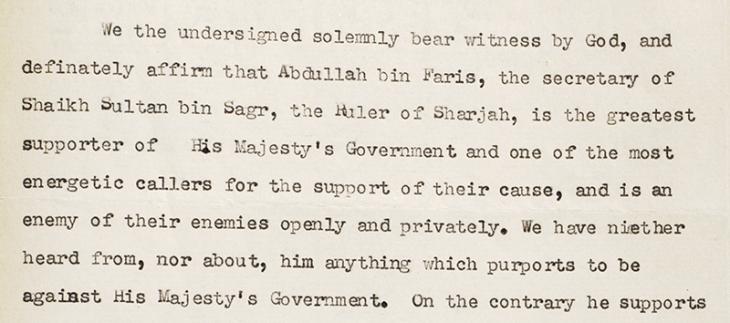
Notwithstanding bin Faris’ tricks – about which the duped signees were informed by Razuqi in October 1940 – Razuqi was able to report to Weightman that after his warnings the Shaikh was now ‘avoiding all talks and topics about the Germans and Italians and is doing his best to show that he is the most loyal and sincere friend of the British government’. Meanwhile bin Faris had ‘refrained from pro-Nazi talks, and so far, is reported to be spreading only good news about the British Government’.
This incident serves to illustrate not only the surprising geographical and linguistic extent of German propaganda efforts during World War II, but furthermore, the event shows how seriously the British authorities considered the dangers of such propaganda, even in parts of its global empire not directly connected to the conflict.



